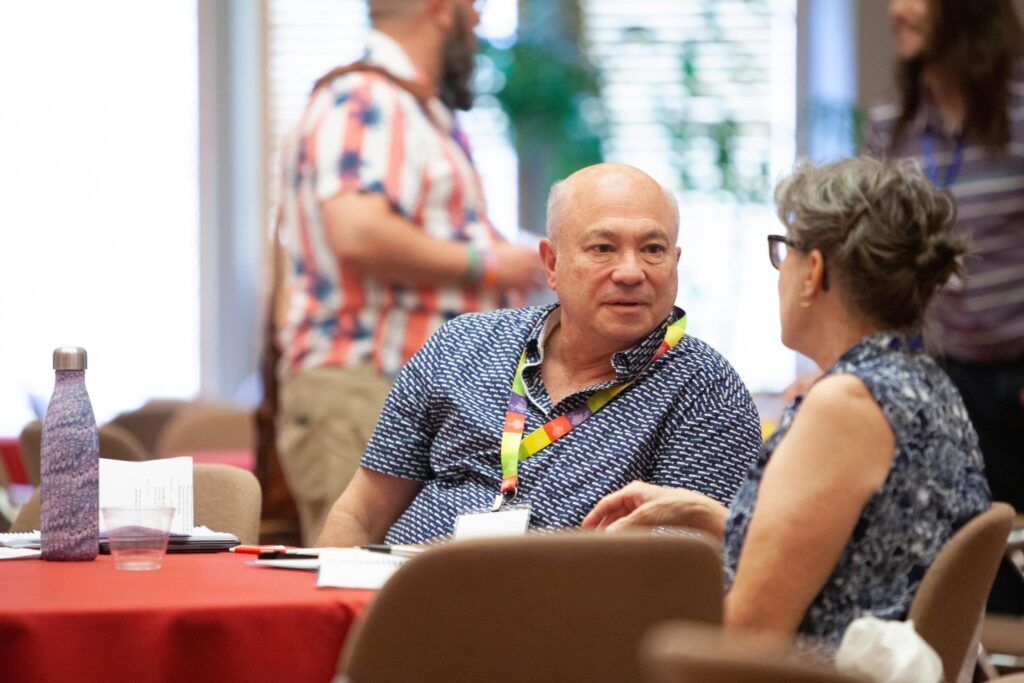Photo credit: Gail Werner.
Writers write words, but writers also feel words. What is written and what is read cannot be separated from what is felt.
Last week I led nearly 100 participants through empathy exchanges at the Midwest Writers Workshop. Much like the trainings The Facing Project leads with community-based writers and storytellers, I asked participants to pair and share using one of two listening prompts:
- Tell about a time that the world judged you for something, but you felt you’d done nothing wrong or were misunderstood; OR
- Find an object on your person and tell the story behind it.
Of course, folks gravitated toward the second option since they were (mostly) in the presence of strangers, and one woman even left when I shared that they had only two minutes each and would then attempt to write their partner’s story as if they were them in the first-person (gasp!).
As chatter echoed across the room, I witnessed what I’ve seen time and again among the faces of storytellers and listeners: nervousness.
It’s one thing to tell a story, and it’s a whole other thing to be a deep listener; especially when the weight of the story must be carried by both in the pair.
But that’s what we do at The Facing Project. We believe that everyone has the ability to tell their own story, but working with a listening partner through an empathy exchange creates a synergy that allows both in the pair to understand the other’s thoughts and feelings from a point of view that is not their own. And then attempting to write the story and capture voice takes the writer from their own world and helps them see a broader, more nuanced way.
After the empathy exchanges and writing exercise at Midwest Writers Workshop, I saw again what I’ve witnessed before when folks take part in this process: excitement; relief; and budding friendships. A few participants shared how it opened up their creativity in a way that loosened blocks, and a husband-wife pair said that they learned something new about each other—even after 30 years of marriage!
Well, we’re not in the business of marriage counseling, but I do think that stands as further proof listening and storytelling can (and do) strengthen relationships and heighten empathy. What I do share is that there are four rules to becoming more empathetic that can be used in any situation:
- Authentic listening is an art (practice makes perfect);
- Ask clarifying questions, but only after the storyteller has shared their truth;
- Begin to see yourself in their story;
- Admit that we all have humanly flaws (it’s what makes us human!).
If interested, you can learn more about these rules in an article I penned for Writer’s Digest.
So, are you up for the challenge? Find a listening partner in your life and do an empathy exchange. A little more empathy in life goes a long way.
—J.R. Jamison, Co-Founder & President
///
Start a Facing Project in Your Community


